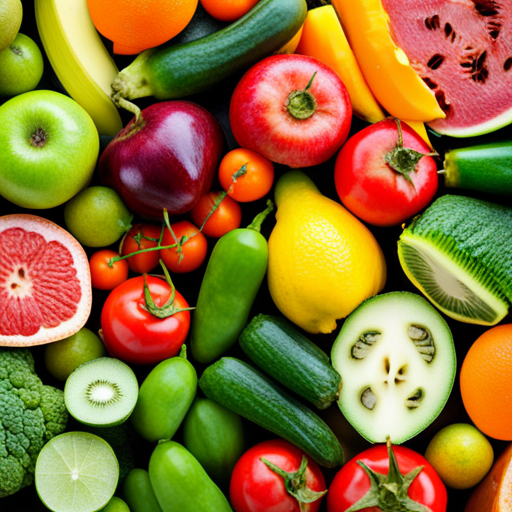
Did you know that digestion issues are common in toddlers? Many parents struggle with their child’s digestion problems, such as constipation, bloating, and stomachaches. If you’re looking for natural ways to improve your toddler’s digestion, you’ve come to the right place. In this blog post, we’ll explore 10 effective and safe methods to promote healthy digestion in toddlers. Say goodbye to tummy troubles and hello to happy little bellies!
Understanding Digestive Issues in Toddlers
Digestive problems can significantly impact a child’s overall well-being and development. It’s essential to understand the common digestive issues that toddlers may face:
1. Constipation
Constipation is a prevalent digestive problem in toddlers. It occurs when the stool becomes hard and difficult to pass. This can cause discomfort, pain, and even loss of appetite in your little one.
Causes:
Constipation in toddlers can be caused by several factors, including:
- Lack of fiber in the diet
- Inadequate fluid intake
- Changes in routine or environment
- Side effects of medication
- Emotional stress
Symptoms:
Watch out for these common signs of constipation in toddlers:
- Infrequent bowel movements (less than three times a week)
- Hard and dry stools
- Pain or discomfort during bowel movements
- Loss of appetite
- Abdominal bloating
Now that we have a better understanding of constipation, let’s explore natural remedies to improve digestion in toddlers!
2. Increase Fiber Intake
Fiber plays a crucial role in promoting healthy digestion. It adds bulk to the stool, making it easier to pass through the digestive system. Here are some ways to increase your toddler’s fiber intake:
Include Fruits and Vegetables
Offer a variety of fruits and vegetables to your toddler’s diet. These are excellent sources of fiber and can help prevent constipation. Some examples include:
- Apples
- Pears
- Berries
- Broccoli
- Carrots
- Spinach
Introduce Whole Grains
Replace refined grains with whole grains in your toddler’s meals. Whole grains retain their fiber content and provide essential nutrients. Examples of whole grains include:
- Whole wheat bread
- Brown rice
- Quinoa
- Oatmeal
Offer Legumes and Beans
Legumes and beans are rich in fiber and can be included in your toddler’s diet. Try incorporating these options:
- Chickpeas
- Black beans
- Lentils
- Peas
3. Encourage Hydration
Adequate hydration is essential for maintaining healthy digestion in toddlers. Water helps soften the stool and prevents constipation. Here are some tips to encourage hydration:
Offer Water Regularly
Make sure your toddler has access to water throughout the day. Encourage them to drink water between meals and snacks. Small sips throughout the day can help maintain hydration levels.
Infuse Water with Fruits
If your toddler dislikes plain water, try infusing it with fruits to add flavor. You can add slices of fruits like strawberries, oranges, or cucumbers to water. This can make drinking water more enjoyable for your little one.
Include Hydrating Foods
Incorporate foods with high water content into your toddler’s diet. Some examples include:
- Watermelon
- Cucumbers
- Oranges
- Tomatoes
- Grapes
By ensuring your toddler stays hydrated, you can help maintain healthy digestion and prevent constipation.
4. Promote Physical Activity
Regular physical activity can aid in digestion and prevent constipation in toddlers. Here are some ways to promote physical activity:
Encourage Active Play
Encourage your toddler to engage in active playtime activities. This can include running, jumping, dancing, or playing games that involve movement. Physical activity stimulates the muscles in the digestive system, promoting healthy digestion.
Take Outdoor Walks
Take your toddler for regular walks outdoors. Walking can help stimulate bowel movements and relieve constipation. Additionally, spending time outdoors can be beneficial for overall well-being.
Involve the Whole Family
Make physical activity a family affair. Involve the whole family in activities like bike rides, hikes, or playing in the park. This not only promotes healthy digestion in toddlers but also encourages a healthy lifestyle for the entire family.
5. Encourage Regular Meal Times
Establishing regular meal times can help regulate your toddler’s digestion. Here are some tips:
Stick to a Schedule
Try to stick to a consistent meal schedule for your toddler. This helps train their digestive system and promotes regular bowel movements. Serve meals at the same time each day to establish a routine.
Avoid Rushed Meals
Encourage your toddler to eat slowly and chew their food properly. Rushed meals can lead to indigestion and discomfort. Create a calm and relaxed environment during meal times, allowing your little one to enjoy their food at their own pace.
Limit Snacking
Avoid excessive snacking between meals, as it can disrupt digestion. Offer healthy snacks when necessary, but try to maintain a structured mealtime routine. This helps prevent overeating and ensures proper digestion.
Conclusion
In conclusion, improving your toddler’s digestion can be achieved through natural methods. By incorporating fiber-rich foods, encouraging hydration, promoting physical activity, and establishing regular meal times, you can help prevent digestive issues such as constipation in your little one. Remember, it’s crucial to consult with your child’s pediatrician if digestive problems persist or worsen. With these natural remedies, you can support your toddler’s digestive health and ensure their overall well-being.
Take action now and start implementing these tips for better digestion in your toddler. Your little one will thank you for it!